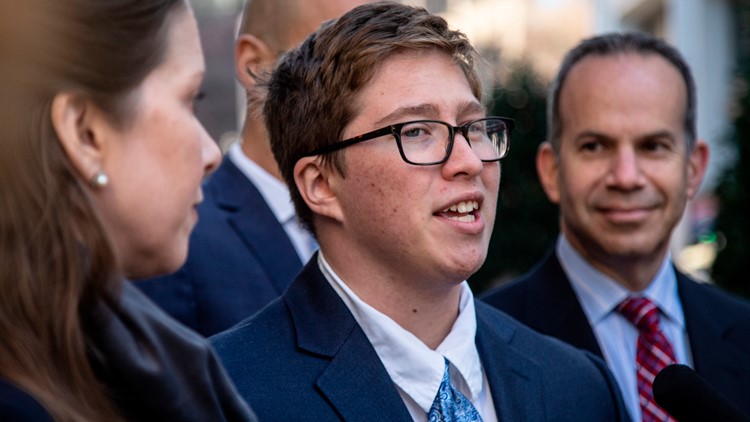A federal appeals court has ruled that a Florida school district's policy of separating school bathrooms based on biological sex is constitutional.
The 11th U.S. Circuit Court of Appeals announced its 7-4 decision on Friday, ruling that the St. Johns County School Board did not discriminate against transgender students based on sex, or violate federal civil rights law by requiring transgender students to use gender-neutral bathrooms or bathrooms matching their biological sex.
The court's decision was split down party lines, with seven justices appointed by Republican presidents siding with the school district and four justices appointed by Democratic presidents siding with Drew Adams, a former student who sued the district in 2017 because he wasn’t allowed to use the boys restroom.
A three-judge panel from the appeals court previously sided with Adams in 2020, but the full appeals court decided to take up the case. Though his assigned gender was female at birth, Adams began transitioning before he enrolled in Allen D. Nease High School in Ponte Vedra Beach, just southeast of Jacksonville.
Judge Barbara Lagoa wrote in the majority opinion that that the school board policy advances the important governmental objective of protecting students’ privacy in school bathrooms. She said the district's policy does not violate the law because it's based on biological sex, not gender identity.
Judge Jill Pryor wrote in a dissenting opinion that the interest of protecting privacy is not absolute and must coexist alongside fundamental principles of equality, specifically where exclusion implies inferiority.
Lambda Legal, a LGBTQ rights group that has been providing aid to Adams, didn't immediately respond to a message seeking comment from The Associated Press.
In October, Florida's board of education passed new rules under existing state laws requiring schools to notify parents of any student bathrooms, locker rooms and dressing rooms that are not separated by biological sex at birth.
"It's not mandating what a particular bathroom looks like or doesn't look like, or who can use it, it's about parental notification," Board Chair Tom Grady said at the time.
However, critics argue it makes transgender students feel targeted, as they are the ones feeling unsafe under the rule.
10 Tampa Bay reporter Miguel Octavio contributed to this report.



